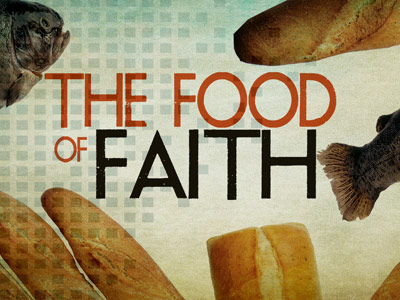-
Sinless! 'cause God Says So!
Contributed by David Anderson on Nov 28, 2017 (message contributor)
Summary: We are justified freely by grace through faith and the justified person shines with the angels of heaven.
Sermon: "Sinless! ’Cause God Says So" D. Anderson
Gen. 2:7-9,15-17,3:1-7; Ro. 5:12-19; Mt.4:1-11
+ + +
God’s word today speaks of the foundation
doctrine concerning how we are saved--the
Doctrine of Justification. Paul proclaims
our justification when he writes by the
inspiration of the Holy Spirit:
17 For if, by the trespass of the one man,
death reigned through that one man, how much
more will those who receive God’s abundant
provision of grace and of the gift of
righteousness reign in life through the one
man, Jesus Christ. 18 Consequently, just as
the result of one trespass was condemnation
for all men, so also the result of one act of
righteousness was justification that brings
life for all men. (Romans 5 NIV)
IT WASN’T THAT LONG AGO WHEN Edward M. Davis,
then Los Angeles police chief, told a
Breakfast Club that the United States was on
the verge of--and I quote--"a crime wave like
the world had never seen before." Why? (And
I quote again) "[because of] the new morality
which condones lying, stealing and killing."
(end of quote).
Now let’s see what sense we can make of the
"new morality." If you no longer consider
lying wrong, will it hurt any less if someone
lies to you?
If you no longer call stealing a crime, will
you remain passive when someone wants to come
into your house and carry away your
furniture?
If killing is no longer murder--a legal term-
-then will bullets and knives hurt you or
your loved ones less?
Clearly, a rose, or a rotten egg, will not
change their aroma when called by another
name. Evil actions continue to hurt and
harm, even if they are no longer called
immoral.
What’s happened today? Why don’t we see
morality in the public square? Why is there
so much violence.
Aleksandr Solzhenitsyn came to the United
States in Exile from the former Soviet Union.
He received the 1970 Nobel Prize for
literature. Speaking at a commencement
address at Harvard University in June of
1978, he compared American morality to a
thin, surface film. Listen to his comment
about how virtuous we act when we feel we can
be criminal without getting caught:
"The center of your democracy and of your
culture is left without electric power for a
few hours only, and all of a sudden crowds of
American citizens start looting and creating
havoc. The smooth surface film must be very
thin, then, the social system quite unstable
and unhealthy." (end of quote)
So I ask the question again: Why don’t we
see morality in the public square? The
answer to this question, I say with deep
meaning and sadness, is that we have lost the
notion of sin within the clear proclamation
of Christendom.
So what does all of this have to do with the
Doctrine of Justification? Very simply said,
if there is no real, hard-core, concrete, and
unholy sin, then everything that I say now,
or the Confessions have said before about
justification, or the Apostle Paul, is
meaningless.
Do you believe that there is such a thing as
sin? I’m serious. This is not a rhetorical
question. Or if you do believe in sin, is
sin merely what other people do?
If you like to steal, is sin everything but
stealing? If you like pornography, is sin
everything but pornography? If you like
casual sex, is sin everything but casual sex?
If you like to gossip, is sin everything but
gossip. If you neglect worship, is sin
everything but neglecting worship?
I MUST TELL YOU FRANKLY, that if you have
started to believe that some of what the
Bible has called sin, is not really sin, than
it’s not a long jump to conclude that all of
what the Bible has called sin, may not be
sin.
And that’s what has happened in Christendom
today! There is very little serious
attention given to what the Bible calls sin,
or to what the Bible calls the dangers of
damnation because of sin.
Against this deceptive and demonic gospel of
Satan, God takes sin very seriously. He has
spelled out the meaning of sin very clearly.
And God will very surely sentence a person to
hell if that individual has only merely one
sin--much less than the millions of sins
which may be accumulated by a person within a
single lifetime.
That’s the true prognosis for each one of us
here today. Sin is so serious to God that He
will not take us into heaven with even one
sin. And any one--any pastor--who relaxes
the code revealing sin--the law of God!--
teaching others to neglect the law of God,
will be, and I quote the Lord Jesus, "Called
least in the kingdom of heaven."
Again the other night, I needed to visit with

 Sermon Central
Sermon Central



